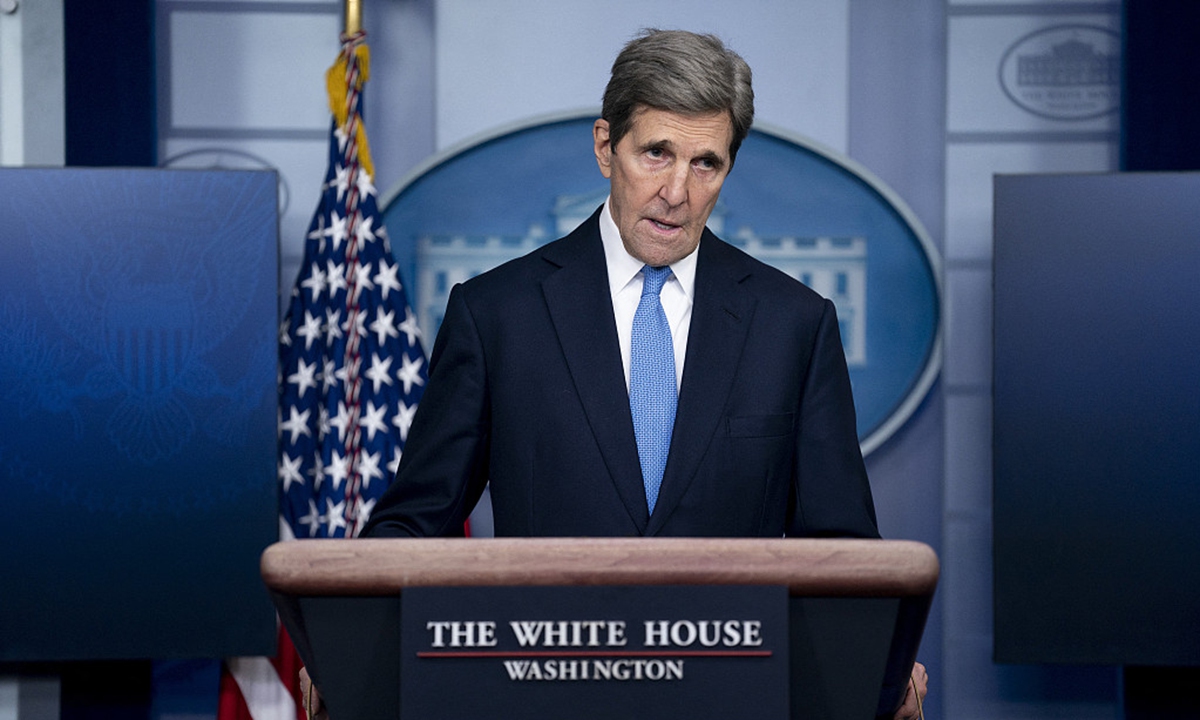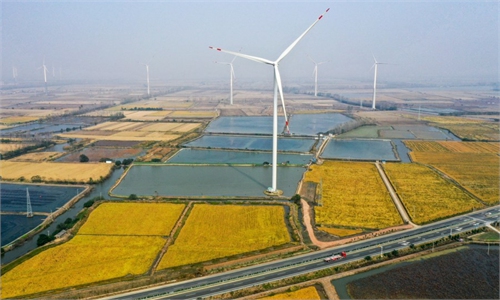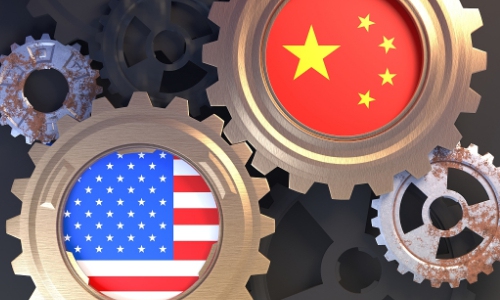US' action to address climate change should keep up with Kerry's stance: Global Times editorial

John Kerry VCG
US Special Presidential Envoy for Climate John Kerry recently urged China to restart climate change talks with the US, saying that Beijing's cooperation is needed. After China announced the halt of negotiations with Washington on climate issues as a response to US House Speaker Nancy Pelosi's provocative visit to the island of Taiwan, Kerry has repeatedly shown the intention to resume climate talks with China at international occasions. Compared with his previous statements, the US climate envoy softened his tone a lot this time. He affirmed China's achievements in the reduction of carbon emissions and energy transition, while stating his desire to cooperate with China. These parts of Kerry's statement are relatively objective.All of his statements, including the latest one, have called for China's return to climate change talks. However, they have intentionally or unintentionally skirted around the fundamental question of why China suspended those negotiations. Beijing has always actively participated in global governance on climate change, including, of course, cooperation with Washington. It is the US side that has ruined the atmosphere for cooperation between the two countries. Even so, China is only "suspending," not "canceling" the talks, and the key to resuming them is in the hands of the Americans. Any cooperation between China and the US cannot be separated from the general environment of their bilateral relations. Washington should seriously reflect on and correct its wrong behaviors. This is the basic condition for restarting cooperation and the minimum respect for the law of cause and effect.
In other words, it seems selfish and hypocritical when the US continues to launch initiatives to suppress and contain China, to undermine and provoke China's interests, while asking for cooperation in some areas. And it is impossible for us not to raise our alarm and doubts about the true intentions of Washington's "cooperation." Some analysts have pointed out that the US is eager to resume climate change talks with China due to the upcoming midterm elections. The problem is that Beijing is not obliged to cooperate with Washington, or to revolve around US domestic issues.
The US now loves to make an issue of China in all areas. But it's unqualified to do so. When it comes to dealing with climate change, Washington should first ask itself: Which of its own promises have been fulfilled regarding issues like emission reduction, financial support and technical assistance?
On the same day that Kerry made his remarks, it was reported by US media that according to a poll, nearly two-thirds of the respondents believed that the federal government is not doing enough to fight climate change, and nearly half believed that the Inflation Reduction Act, which the US government is proud of, won't make much of a difference on climate change. The results of this survey are consistent with the outside world's impression of the US.
To restart China-US climate change talks, the US needs to show its sincerity, and the foundation of sincerity is credibility. People still remember when Kerry signed the Paris Agreement on behalf of the US at the UN headquarters in 2016 with his granddaughter by his side. Later, everyone saw that such a promise could be easily overturned after the change of government. This is the current reality of US politics. Who can guarantee that the US will not sway on the climate change issue in the future, or politicize and weaponize it? To dispel these doubts and rebuild credibility, the US needs to do much more. Any commitments delivered via megaphone internationally can only be formalistic empty words if there is no action taken internally.
Unlike the US, China has always been genuine in words and resolute in deeds. Over the past 10 years, China has been one of the countries with the most outstanding achievements in addressing global environmental issues. Its contribution to energy conservation, energy efficiency improvement, renewable energy development, transportation, construction and other fields has basically accounted for 30 percent to 50 percent of the global total. The time China promised to bring carbon emissions to a peak and achieve carbon neutrality is also much shorter than that of developed countries. All of this is not the result of US' "pressing," but rather China's active pursuit and action. One of the characteristics of Chinese modernization is "the harmonious coexistence of man and nature." And one of the goals of promoting the building of a community with a shared future for mankind is to build a "clean and beautiful world."
In fact, China has always taken a constructive and open-minded attitude toward China-US dialogue and cooperation. It is the US side that is constantly creating obstacles and sabotaging relevant cooperation. Kerry may be sincere in his desire to resume China-US cooperation in the field of climate change, but he should probably first persuade US government to remove the roadblocks, for instance, lifting sanctions on Xinjiang's photovoltaic industry and ceasing the unreasonable crackdown on China in the field of chips. The US hasn't benefited from relevant measures, but they have hindered the global development of clean energy. In addition, it's also time for Washington to honor its pledge to fund the Green Climate Fund.
Compared with the Trump administration's rudeness and recklessness on climate change, Kerry's attitude is good. But actions speak louder than words. The world is waiting for the US, the country with the largest cumulative CO2 emissions in the world, to take more action to benefit international cooperation in a responsible manner and fully honor its commitments.


